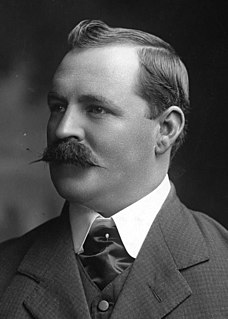A Quote by Charles McGrath
That’s the problem with fiction — or the charm, if you want. Even mediocre plots have a way of sinking their hooks into you, until you find yourself concerned for the fates of characters who aren’t even fully convincing.
Related Quotes
Though it's marvelously entertaining, and I had fantastic fun writing the book, it's not terribly easily, the material, and it's not all that familiar...although we think it is familiar. The processes of the wonderful narratives are very intricate. It's about the charm - the spellbinding charm - of ingenuity, and it's not so easy to remember the plots or the structure or even the names.
Memory is like fiction; or else it's fiction that's like memory. This really came home to me once I started writing fiction, that memory seemd a kind of fiction, or vice versa. Either way, no matter how hard you try to put everything neatly into shape, the context wanders this way and that, until finally the context isn't even there anymore... Warm with life, hopeless unstable.
Comedy is like fictional charm. It's the charm of fiction. Or the charisma of fiction. When you meet somebody who's immediately charismatic, you're attracted to that person. And in fiction it's got to come out in either one of two ways: in the prose itself, and you're hooked immediately because you never want to leave such a colorful and penetrating world. Or, it's simply being a funny writer.
Unlike most wars, which make rotten fiction in themselves - all plot and no characters, or made-up characters - Vietnam seems to be the perfect mix: the characters make the war, and the war unmakes the characters. The gods, fates, furies had a relatively small hand in it. The mess was man-made, a synthetic, by think tank out of briefing session.
That the question of likability even exists in literary conversations is odd. It implies that we are engaging in a courtship. When characters are unlikable, they don’t meet our mutable, varying standards. Certainly we can find kinship in fiction, but literary merit shouldn’t be dictated by whether we want to be friends or lovers with those about whom we read.
The first act of insight is throw away the labels. In fiction, while we do not necessarily write about ourselves, we write out of ourselves, using ourselves; what we learn from, what we are sensitive to, what we feel strongly about--these become our characters and go to make our plots. Characters in fiction are conceived from within, and they have, accordingly, their own interior life; they are individuals every time.
When you're writing a book that is going to be a narrative with characters and events, you're walking very close to fiction, since you're using some of the methods of fiction writing. You're lying, but some of the details may well come from your general recollection rather than from the particular scene. In the end it comes down to the readers. If they believe you, you're OK. A memoirist is really like any other con man; if he's convincing, he's home. If he isn't, it doesn't really matter whether it happened, he hasn't succeeded in making it feel convincing.

































